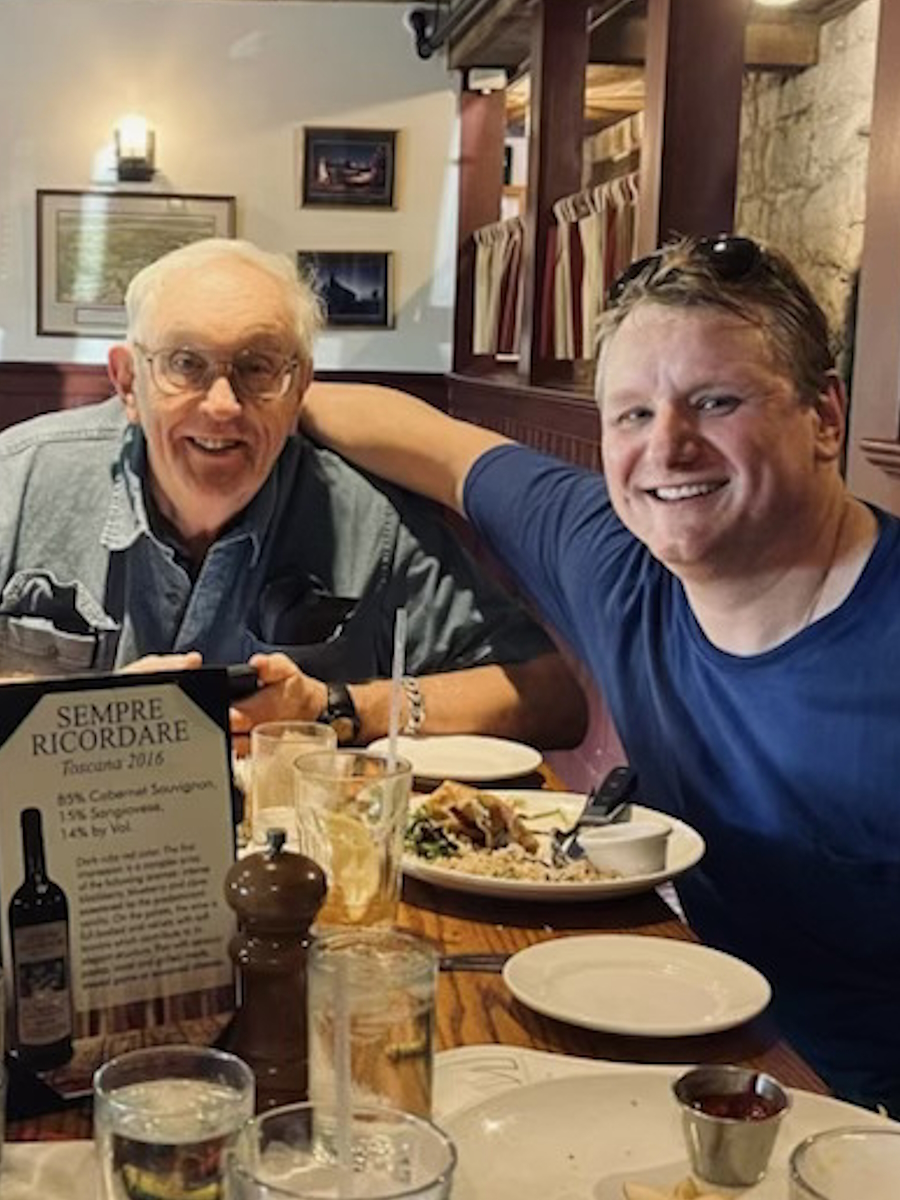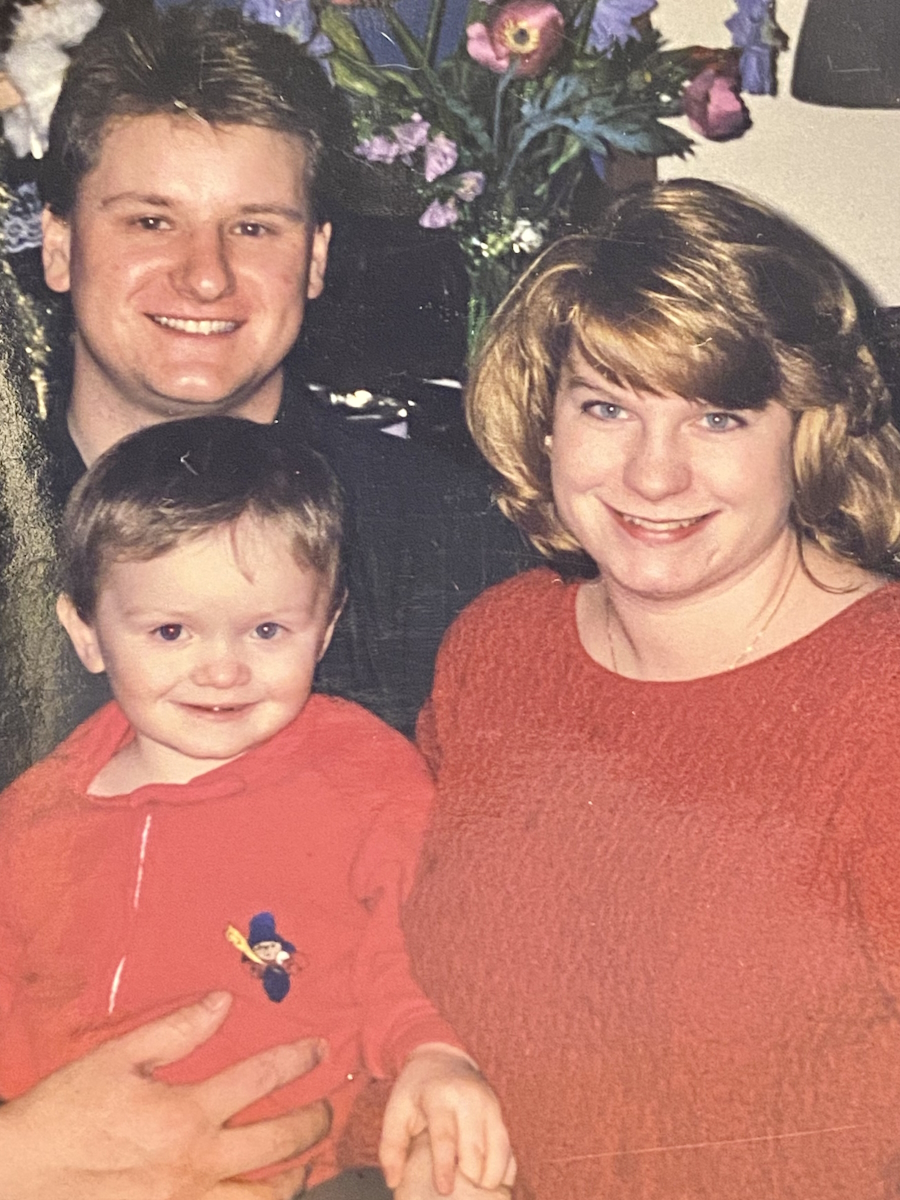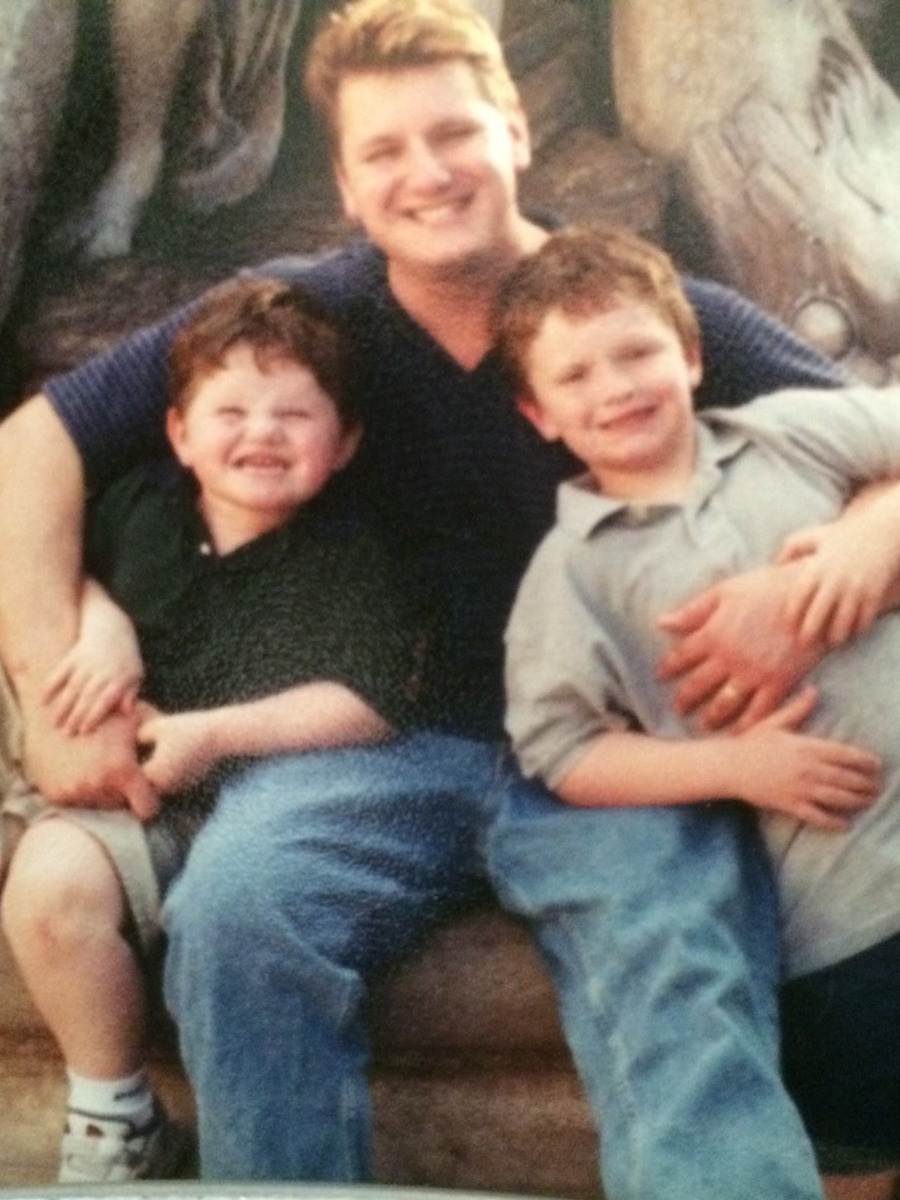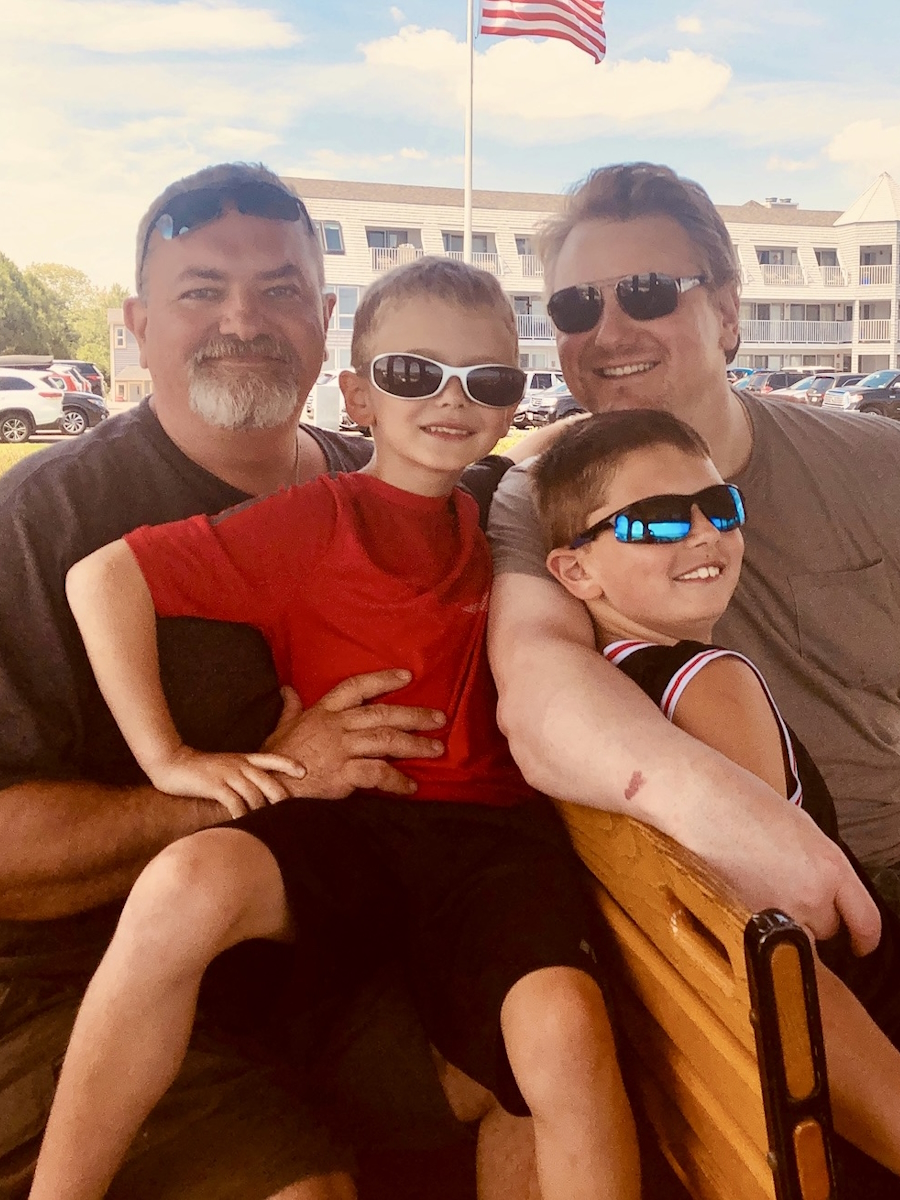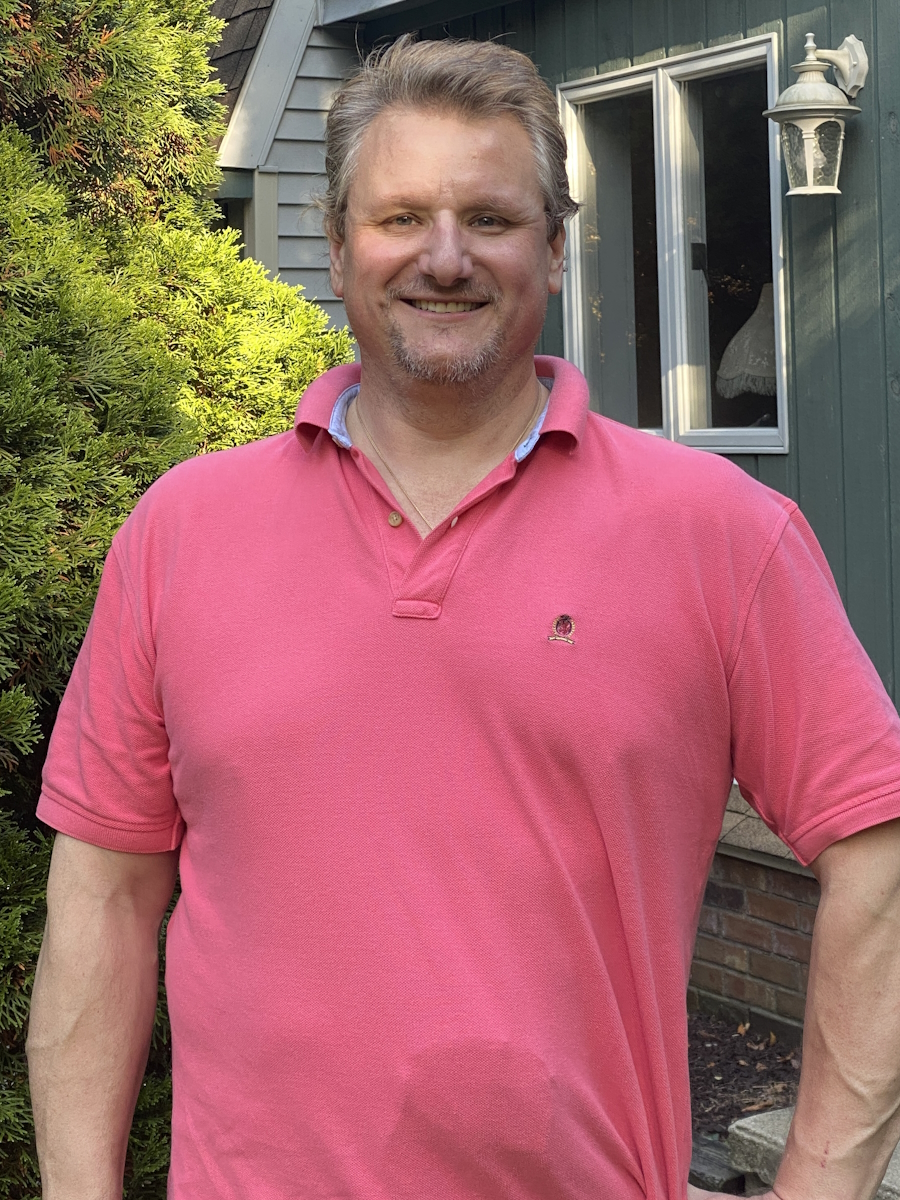Rectal Cancer at 31: 20 Years Later – What James Wishes More People Knew
James was just 31 when he was diagnosed with stage 3 rectal cancer (stage 3C/4) in 2003. His story is powerful, emotional, and deeply human, full of hard lessons, honest reflections, and resilience in the face of change. Before jumping into the challenges he faced and continues to face, know that we are talking to him 20 years after his diagnosis. Keep that fact with you as you take in his story. Through his experience, James came out the other side with a new understanding of life, health, and identity.
Interviewed by: Nikki Murphy
Edited by: Katrina Villareal
For years, James experienced rectal bleeding, which was brushed off as hemorrhoids. Despite reassurances from his primary care doctor and even a gastroenterologist, he trusted his instincts and pushed for a colonoscopy. That test revealed a tumor, and in that moment, James knew. “I have rectal cancer,” he told the nurse, who broke into tears. That moment set the tone for what would become a life-altering experience grounded in self-advocacy, awareness, and emotional strength.

The treatment for rectal cancer was intense. Chemotherapy, radiation, multiple surgeries, and eventually a permanent colostomy were part of the plan. Initially, doctors tried to preserve rectal function, but complications led James to choose the colostomy to improve his quality of life. It wasn’t an easy decision, but for him, it was the right one. He emphasizes that a colostomy isn’t something to fear; it’s manageable and can absolutely be life-saving.
James speaks openly about the emotional toll rectal cancer took on him. It stripped away his sense of self and forced him to come to terms with a “new normal.” He faced physical challenges like chronic pain, fatigue, and even had to teach himself to self-catheterize. But alongside all that, he also faced a mental and emotional reckoning: accepting help, learning patience, and embracing vulnerability.
What sets James apart is his focus on empowerment and education. He wants others to listen to their bodies, speak up when something feels wrong, and not be afraid to advocate for themselves. For James, survivorship isn’t about going back to how things were. It’s about adapting, growing, and finding meaning in new experiences, even when life looks completely different.
Now, more than 20 years out with no recurrence of rectal cancer, James still lives with side effects of treatment, but doesn’t let them define him. He shares his experience to let others know they’re not alone. You can live a full, meaningful life with rectal cancer. It may look different, but it’s still yours.
Watch James’ video to find out more about his story:
- James knew something was wrong long before doctors did and he didn’t stay silent.
- From possible hemorrhoids to a life-saving colostomy, James shares it all.
- Life after rectal cancer isn’t easy, but James proves it’s possible and meaningful.
- Discover why James calls his colostomy both difficult and a relief.
- Name: James K.
- Age at Diagnosis:
- 31
- Diagnosis:
- Rectal Cancer
- Staging:
- Stage 3C/4
- Symptoms:
- Occasional rectal bleeding
- Increasing fatigue
- Treatments:
- Chemoradiation
- Surgeries: coloanal pull-through, temporary ileostomy, ileostomy reversal, permanent colostomy
- Adjuvant chemotherapy
This interview has been edited for clarity and length. This is not medical advice. Please consult with your healthcare provider to make informed treatment decisions.
The views and opinions expressed in this interview do not necessarily reflect those of The Patient Story.

Inspired by James's story?
Share your story, too!
More Rectal Cancer Stories
Kalei M., Rectal Cancer, Stage 4 (Metastatic)
Symptoms: Presence of mucus and tissue-like substance and blood in stool, stomach cramping
Treatment: Radiation therapy, chemotherapy, surgeries (two lung resections)
Jessica A., Rectal Cancer, Stage 4 (Metastatic)
Symptoms: Changes in bowel movements, blood in stool, abdominal pain, back pain, difficulty sitting comfortably, constipation, feeling of incomplete evacuation (as if some stool remained after bowel movements), mucus-like stool consistency, bloating
Treatment: Immunotherapy under a clinical trial
Shiva S., Rectal Cancer, T2, and Renal Cancer, T3
Symptoms: Pressure and urgency of bowels, back pain
Treatments: Chemoradiation (for rectal cancer), surgery (ileostomy, combined bowel and kidney surgery), immunotherapy (for kidney cancer)
Jeanine B., Rectal Cancer, Stage 3 (T3bN0M0)
Symptoms: Long history of bleeding that was blamed on hemorrhoids, pain in the tailbone, urgent need to use the restroom, unusually narrow stools, presence of mucus in stools, fatigue
Treatments: Chemotherapy, radiation therapy
Devon B., Rectal Cancer, Stage 4
Symptoms: Pain when trying to move bowels, increased frequency of bowel movements alternating with periods of constipation, passing mucus instead of feces, narrow stools
Treatments: Surgery (ostomy surgery), radiation therapy, chemotherapy
James K., Rectal Cancer, Stage 3C/4
Symptoms: Occasional rectal bleeding, increasing fatigue
Treatments: Chemoradiation, surgeries (coloanal pull-through, temporary ileostomy, ileostomy reversal, permanent colostomy), adjuvant chemotherapy

